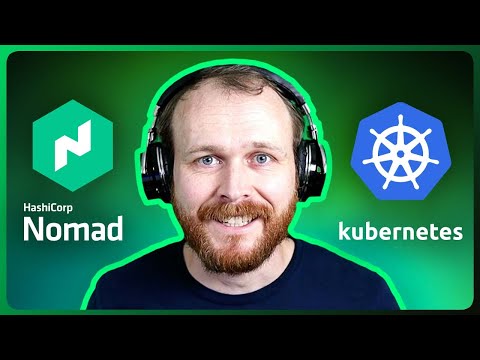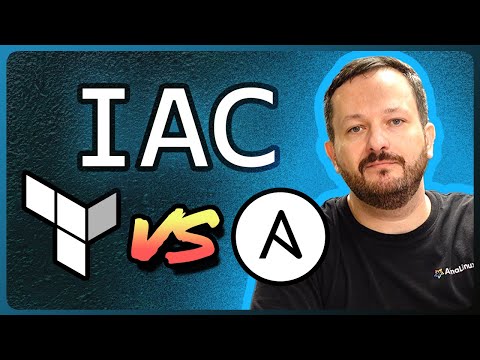Chris Alfano is passionate about open source software. That commitment led him to reject any notion that there’s an organization too small to design and run their own software. If you need any more proof of his dedication to the open source community, look no further than Jarvus, the mission-driven software engineering and design firm he co-founded in 2010.
“There’s a lot of innovation in information technology today, but it’s really driven by the venture capital-backed, global side of the market where, if you’re not at that scale, you’re forced to use the tools and practices they release,” explains Chris, Jarvus’ CTO. “This is a fatal trap for when you buy tools designed for a global scale and try to apply it at a smaller scale.”

While many of Jarvus’ clients are smaller organizations, including local government, nonprofits, and schools, Chris and his team also work with their fair share of enterprise customers that need to improve operational efficiencies. “We want to provide all of our customers the benefit of designing and running their own software whenever possible,” he said. “Too often, we see people try to adapt to software and work around a system rather than having a system designed to support their workflow.”
Chris is quick to point out that he has no problem using off-the-shelf solutions. Still, a common thread for Jarvus is its ongoing effort to architect systems on top of open source components that end up at the center, allowing anyone to add or remove components and for the software to evolve.
“Our overarching mission is to help bring the cloud to the ground for small organizations as well as for enterprises, businesses, and communities,” he said. “I think building on open source components and on software that you have the right to use, keep building on, change, and modify is a lot more important than it gets credit for.”
Jarvus’ focus on closing technology gaps is the impetus for the company’s ongoing investments in a variety of civic and educational initiatives. Those projects include Slate, an education technology platform, and the popular Philly Tech Week, a week-long celebration that showcases technology and innovation happening throughout the Greater Philadelphia region. The company led the effort to nickname the North 3rd Street in the city, N3rd (“Nerd”) Street, which is now home to Jarvus and other local tech companies including Linode. It also helped launch the professional eSports organization, N3rd Street Gamers.
Infrastructure Efficiency with Kubernetes
Chris serves as a brigade captain for Code for Philly. One of his projects is the Civic Cloud, which gives tech volunteers a dependable path for handing off their ready-to-launch projects to become permanent fixtures of the public commons.
Part of the Civic Cloud is the CHIME (COVID-19 Hospital Impact Model for Epidemics) app that computes the theoretical number of people infected with a contagious illness in a closed population over time to predict outcomes. Created along with data scientists at Penn Medicine, a world-renowned academic medical center in Philadelphia, the app runs on Linode Kubernetes Engine (LKE), a fully-managed container orchestration engine for deploying and managing containerized applications and workloads.
Chris was attracted to Linode because of similar commitments to the Philadelphia tech scene and to democratizing cloud computing by empowering developers and helping the world innovate on the open cloud.
“The big three cloud providers are really designed to leech money out of giant enterprises, and that’s infused in all of their decisions,” he said. “I have used and still use all of them, but their sheer number of services is a means to create lock-in for what should be a commodity, making it hard, if not impossible, to migrate to another provider.”
Linode Kubernetes Engine makes the biggest difference for Chris because it lacks the complexity of other Kubernetes offerings. “In certain use cases, it’s a big advantage,” he said. “While some feature needs could knock the Linode Kubernetes Engine out of consideration, for the scale I operate in, it’s a superior solution. I’m sure it also won’t take long for Linode to respond to its customers and add what we want.”
Kubernetes also fits into Jarvus’ overall strategy at the scale in which it operates. For instance, when Chris sets up a Kubernetes cluster for a customer on Linode, pricing includes only the resources he will consume. The cluster’s master services are free of charge. “I can be sure that’s what it’s going to cost until I increase the size of the cluster,” he described. “When I create Kubernetes clusters in GCP (Google Cloud Platform) and then create some Ingress rules that they vacuum up and provision some high-level services for, all of a sudden, my bill is $600 for what was supposed to be $20.”
In addition to receiving straightforward pricing and avoiding vendor lock-in, Chris also points to the high level of support he receives as another reason he continues to recommend Linode to new and existing Jarvus customers and Code for Philly projects.
“When I open tickets with Linode, it’s a human who understands my problem, and generally tries to address it,” he said. “Whenever I have to deal with Azure, AWS, or Google support, it’s just someone who tries their hardest not to do anything for me and says just go read this article.”
There’s plenty of camaraderie between Chris, Code for Philly, his team at Jarvus, and Linode. You might even call it Brotherly Love.




